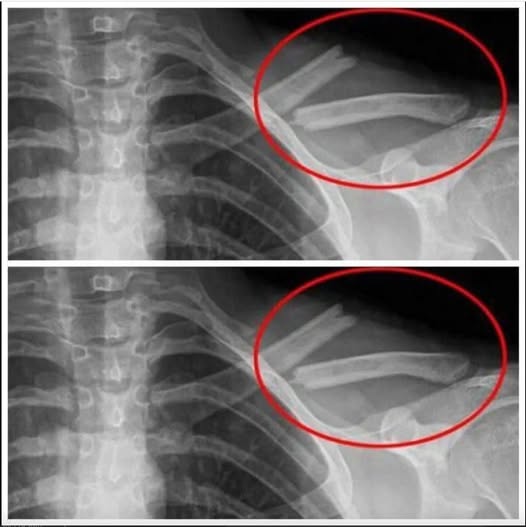No matter how often we hear about the negative health impacts of soda, or how many times our parents insisted we “just drink water” as kids, many of us still reach for a can of soda now and then. In fact, over the years, a significant number of people have made the switch to diet soda, assuming it’s a healthier alternative. It promises fewer calories, zero sugar, and the same sweet fizz we crave. But here’s the thing—emerging research suggests that even diet soda may come with a host of hidden downsides that could be just as harmful as its sugary counterpart. If you’re thinking that diet soda is the lesser evil, you might want to think again.

I used to be in the same boat, thinking my daily diet soda habit was a smart choice. It wasn’t until I came across some surprising information about what actually happens to your body when you stop drinking diet soda that I started rethinking my choices. Curious to know what I found out? Stick around—this might just change the way you view that “harmless” can of soda.
Many people believe that simply cutting out sugar is enough, and that switching to sugar-free or low-calorie sodas is a step in the right direction. Unfortunately, that’s not entirely true. Products labeled as “healthy” alternatives often come with hidden consequences, and in the case of diet soda, those consequences can affect your body in more ways than you might expect. If you care about your health and want to be mindful of what you put in your body, it’s important to understand the full picture.
One of the first things that happens when you quit diet soda is a noticeable decrease in sugar cravings. That may sound surprising, given that most diet sodas contain no actual sugar. But the sweet taste from artificial sweeteners like aspartame can trick your brain into wanting more sweetness. According to Dr. Melina Jampolis, a diet and fitness expert, the sweet taste can trigger insulin production, which in turn causes blood sugar to drop. This drop can lead to hunger and cravings for sugary foods. In other words, even though you’re not consuming real sugar, your body reacts as if you are—and ends up wanting more of it.
But it doesn’t stop at sugar. Diet soda can actually ramp up your cravings for food in general. Nutritionist Isabel Smith explains that artificial sweeteners confuse your body’s ability to feel full. Our bodies are conditioned to expect a high number of calories when something tastes very sweet. Artificial sweeteners, which can be 400 to 8,000 times sweeter than sugar, lead the body to prepare for a calorie-rich intake. But when those calories don’t arrive, your brain sends out signals that you’re still hungry. This lack of satisfaction can lead to overeating, especially foods high in calories.
So what does this mean for your waistline? Well, although many people turn to diet soda as a weight-loss strategy, it could actually be sabotaging those efforts. The bloating, increased cravings, and hormonal confusion it causes can make it even harder to shed pounds. In fact, studies have linked diet soda consumption to higher risks of obesity, metabolic syndrome, high blood pressure, and type 2 diabetes. Instead of helping you lose weight, diet soda might be pushing you in the opposite direction.
Another unexpected benefit of giving up diet soda is an improved sense of taste. Artificial sweeteners can dull your tastebuds over time, making it harder to appreciate the natural flavors of food. When you stop drinking diet soda, your tastebuds begin to reset. You might find that fruits taste sweeter, vegetables more flavorful, and you become more sensitive to subtle differences in food. For many people, this makes healthy eating not only easier but more enjoyable.
Your immune system might thank you too. Research now shows that diet soda can interfere with your gut microbiome—the healthy bacteria that play a crucial role in digestion and immune function. Isabel Smith notes that when your gut flora is disrupted, it affects how your body handles blood sugar and even how well your immune system performs. A healthier gut means a stronger defense against illness and better overall function.
Then there’s the issue of bone health. Although more research is needed, studies have found a connection between diet soda and decreased bone density. Even just one can a day has been linked to a 14% increase in the risk of hip fractures. While the exact reason for this isn’t fully understood, the correlation is strong enough to warrant caution. If you’re concerned about your long-term bone health, cutting back on soda might be a wise move.
Interestingly, ditching diet soda can also affect how your body responds to alcohol—especially if you’ve been using it as a mixer. Research has shown that when mixed with alcohol, diet soda can cause you to become intoxicated more quickly. That’s because the artificial sweeteners allow the alcohol to enter your bloodstream faster than regular sugary mixers. If you’re trying to pace yourself on a night out, switching to a different mixer could help you stay in control longer.
Lastly, your kidneys could benefit in a big way. These hardworking organs are responsible for filtering out toxins, maintaining fluid balance, and regulating blood pressure. But diet sodas, loaded with artificial chemicals and additives, can put unnecessary stress on them. When you remove those substances from your routine, your kidneys can operate more efficiently, helping your body maintain balance and improve detoxification.
All of this certainly gave me a new perspective on diet soda. If you’re someone who drinks it regularly, consider trying to cut back—or eliminate it entirely—and see how your body reacts. Even reducing your intake could lead to noticeable improvements. It might not be easy at first, but the potential benefits are more than worth it.
And if this information opened your eyes the way it did mine, don’t keep it to yourself. Share it with friends and family so they, too, can understand the hidden risks of diet soda. Health is one of the most valuable things we have—and sometimes, something as simple as changing what we drink can make a world of difference.





